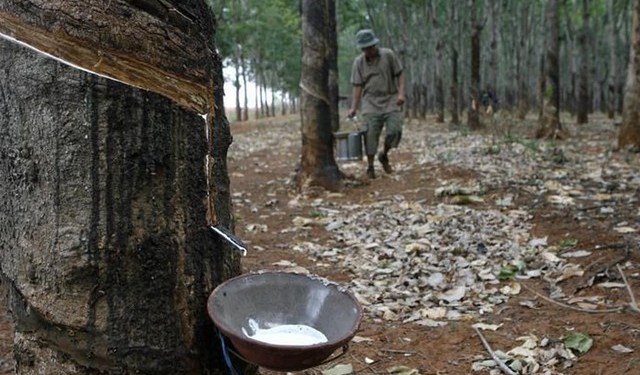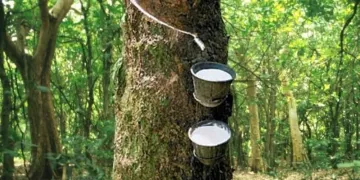Reuters – President Ellen Johnson-Sirleaf has suspended exports of unprocessed rubber from Liberia in a bid to force companies to process thecommodity in the West African country, saying this will provide a boost to domestic economic activity.
An executive order issued by Johnson-Sirleaf late on Thursday said the export ban was aimed at ensuring new job opportunities and development.
It said urgent action was needed to stem a decline in its rubber sector amid illegal rubber tapping.
“The intention is to add more value to our production … This will help to open new factories,” Robert Kpadeh, Deputy Minister for Technical Services told Reuters.
Kpadeh said there would be a short term drop in government revenues, without providing further details.
Agriculture ministry officials could not immediately specify what percentage of Liberia’s rubber exports is unprocessed.
Liberia, struggling to recover from a 14-year on-off civil war which ended in 2003, has for decades been a major exporter of rubber, which is the largest employer in its economy.
The International Monetary Fund forecasts Liberia’s tiny economy – whose output is estimated at only around $1.8 billion a year – grew by 8.3 percent in 2012 and is on track to grow 7.5 percent this year, driven mainly by strong mining sector.
Rubber is Liberia’s largest export, worth just under $200 million a year, or roughly 40 percent of total annual exports, according to IMF figures.
Firestone, which signed a 99-year contract with the Liberian government in 1926, operates the world’s largest single natural rubber plantation in Liberia, covering almost 200 square miles.
Firestone Natural Rubber Company said on its website that it exports one shipload of processed latex from the port of Monrovia each month.
Production from its plantation is used in the manufacture of tires by its parent company Bridgestone, as well as in the manufacture of medical components, adhesives and condoms.
Other major copper companies include Salala rubber company and SIFCA, part owned by Singapore’s Olam International and Wilmar International.
“This will create new jobs but at the same time will have an impact on us,” said one official at Salala rubber company, who asked not to be identified. “What exactly that will be, we cannot say.” (Reporting by Alphonso Toweh; writing by Daniel Flynn; editing by James Jukwey)
Source: Reuters



























